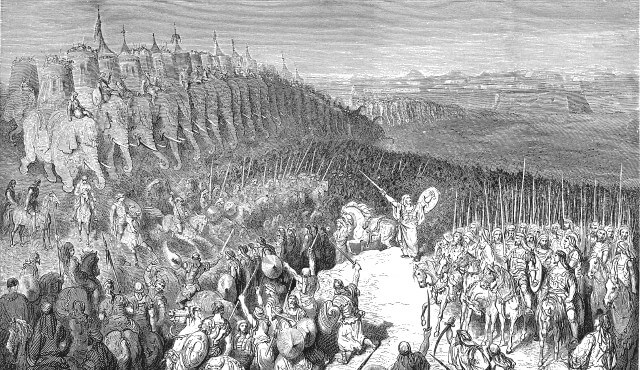We may ask a number of questions on the Talmudic account of Chanukah:
The Jewish people have fought many battles in their long history. Some of these battles were accompanied by miracles, such as the walls of Jericho that fell and the sun that stood still during the battle at Givon. Why was only the Hasmonean victory chosen to be commemorated as a holiday for future generations?
Why celebrate a military conflict in which the Temple was defiled and many Jews were lost to a foreign culture?
Why is there no mitzvah to celebrate Chanukah with a festive meal, unlike other holidays? Why only ‘a holiday of praise and thanksgiving'?
What is the significance of the miracle of the undefiled cruse of oil?

Culture Clash
The military victories of the Greek empire brought about the spread of Greek culture and philosophy, and the superficial charm of Hellenism captured the hearts of many Jews. These new ideas undermined fundamental teachings of the Torah and central mitzvot. The danger was so great that this clash of cultures could have caused permanent damage to the spiritual state of the Jewish people.
The Talmud emphasizes the significance of the small cruse of oil in the rescue of the Jewish people. The sealed jar of pure oil is a metaphor for the kernel of pure faith that resides in the depths of the Jewish soul. It was this inner resource of pure holiness that guarded the Jewish people in their struggle against Hellenism.
The Sages understood that Chanukah needed to be established as a permanent holiday. They realized that the battle against an overwhelming foreign culture was not just the one-time struggle of the Hasmoneans. All generations require the strength and purity of inner faith to protect the Torah from the corrupting influences of foreign beliefs and values.
The Contribution of Hellenism
The Sages also realized that this conflict with Hellenism, despite its disastrous short-term effects, would ultimately bestow great benefits. This is a basic rule of life: those challenges that confront us and threaten our beliefs and way of life will in the end invigorate the sources of truth. Greek wisdom, after it has acknowledged the Divine nature of Torah, will serve to further honor and strengthen the Torah and its ideals. Therefore it is fitting to celebrate these days, despite the trauma of the Hasmonean period.
Significantly, the festival of Chanukah is celebrated without feasting and wine. There were two sides to Hellenism: its intellectual aspects – Greek philosophy, literature, and so on — and its popular culture of physical pleasures and crass entertainment. One might mistakenly think that Hellenism’s positive contribution also includes its hedonistic delight in wine, parties, and naked wrestling matches. Therefore we specifically celebrate Chanukah with spiritual rituals — lights and Hallel, praise and thanksgiving. For the true contribution of Hellenism is its intellectual side, that which posed such a grave challenge to the Torah in the times of the Hasmoneans. It is this aspect of Greek culture that will defend and enhance the Torah in the future.
(Silver from the Land of Israel, pp. 109-111. Adapted from Ein Eyah vol. III on Shabbat 21b (2:13) by Rav Chanan Morrison.)


No comments:
Post a Comment